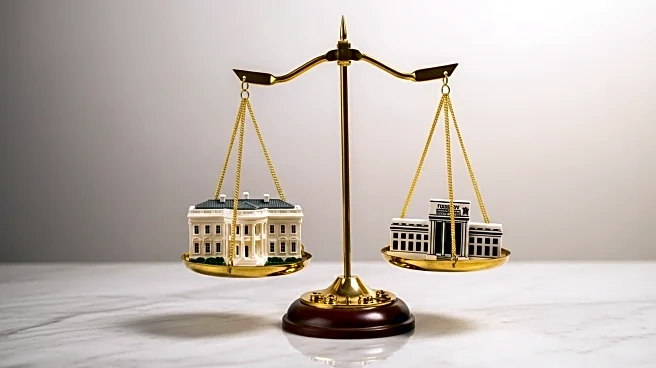What is the story about?
What's Happening?
The White House is expecting the Federal Reserve to contemplate a larger rate cut in its upcoming meeting, following disappointing job data for August. The report indicated weaker job growth, with the unemployment rate rising to 4.3%. Kevin Hassett, Director of the National Economic Council, mentioned that while the market anticipates a 25-basis-point cut, discussions about a larger cut are likely. President Trump has been advocating for rate cuts to support his economic policies, despite concerns about the Fed's independence. The recent job data has heightened the urgency for the Fed to address the fragile job market.
Why It's Important?
The potential rate cut by the Federal Reserve is significant as it could influence economic growth and stability. Lower interest rates generally encourage borrowing and investment, potentially stimulating the economy. However, there are concerns about inflation and the Fed's independence, given President Trump's persistent calls for rate reductions. The decision could impact various sectors, including housing, which has been underperforming. Stakeholders such as businesses and consumers may benefit from lower borrowing costs, but the broader implications on inflation and economic policy remain a point of contention.
What's Next?
The Federal Reserve is scheduled to meet on September 16-17, where the decision on interest rates will be made. The outcome will be closely watched by economic stakeholders, including businesses, investors, and policymakers. The Fed's approach to balancing economic growth with inflation control will be critical in shaping future economic policies. Reactions from political leaders and market analysts are expected, as the decision could have far-reaching effects on the U.S. economy.
















